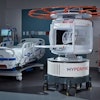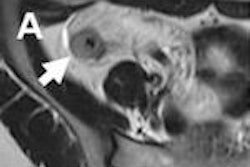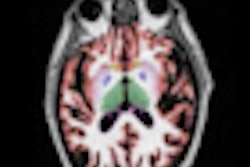With the use of a new algorithm, MRI scanning time could be cut to just 15 minutes, according to research to be published in Magnetic Resonance in Medicine.
A group from the Research Laboratory of Electronics at the Massachusetts Institute of Technology (MIT) developed the algorithm, which uses information gained from the initial MRI contrast scan to help produce subsequent images. As a result, the scanner does not have to start from scratch each time it produces a different image from the raw data, according to the team led by Elfar Adalsteinsson and Vivek Goyal.
Because the scanner already has a basic outline to work with, later scan acquisition times are considerably shortened, the researchers noted. The software creates the outline by looking for features that are common to all the different scans, such as the basic anatomical structure.
In particular, the algorithm uses the first scan to predict the likely position of the boundaries between different types of tissue in the subsequent contrast scans. For each pixel, the algorithm calculates what new information it needs to construct the image and what information, such as the edge of different tissue types, it can take from previous scans.
The researchers acknowledged that the faster scan time does have a slight impact on image quality, but they believe it is much better than competing algorithms.
In ongoing work, the team is seeking to further improve the algorithm by speeding up the time it takes to process the raw image data into a final scan that can be analyzed by clinicians. Using standard computer processors, this final step currently takes considerably longer than with conventional MRI scans; a student at the laboratory is now working to implement the algorithm on a dedicated graphics processing unit (GPU).


.fFmgij6Hin.png?auto=compress%2Cformat&fit=crop&h=100&q=70&w=100)





.fFmgij6Hin.png?auto=compress%2Cformat&fit=crop&h=167&q=70&w=250)











